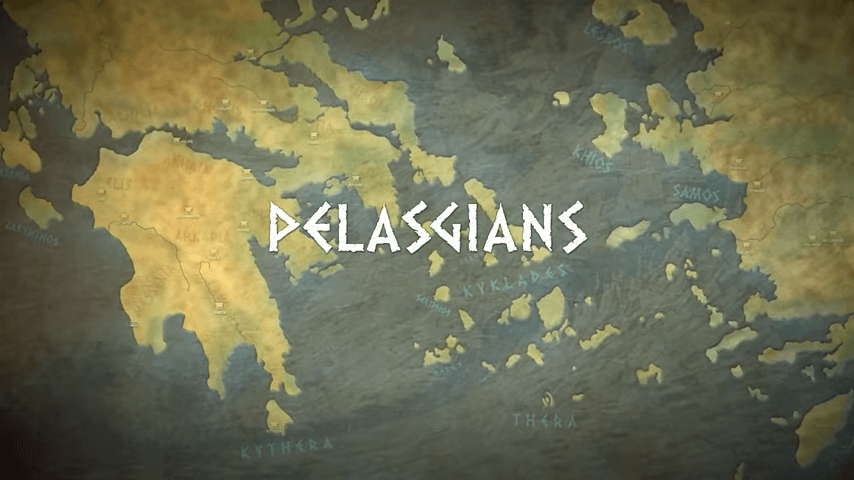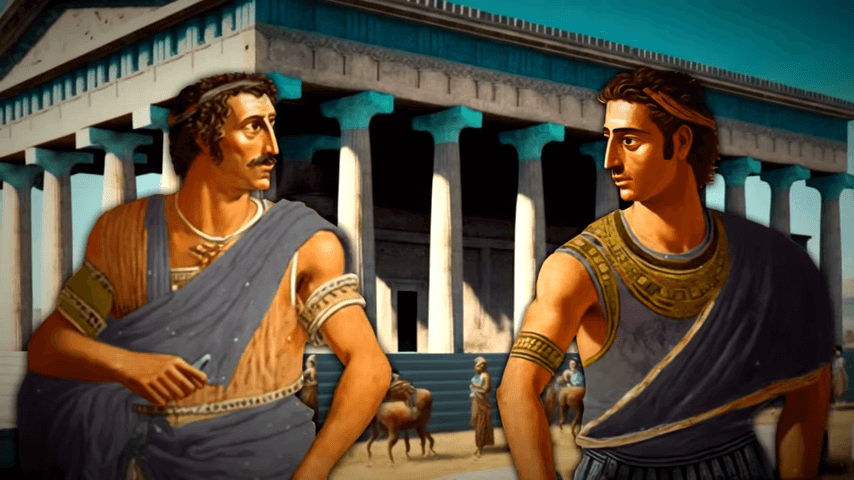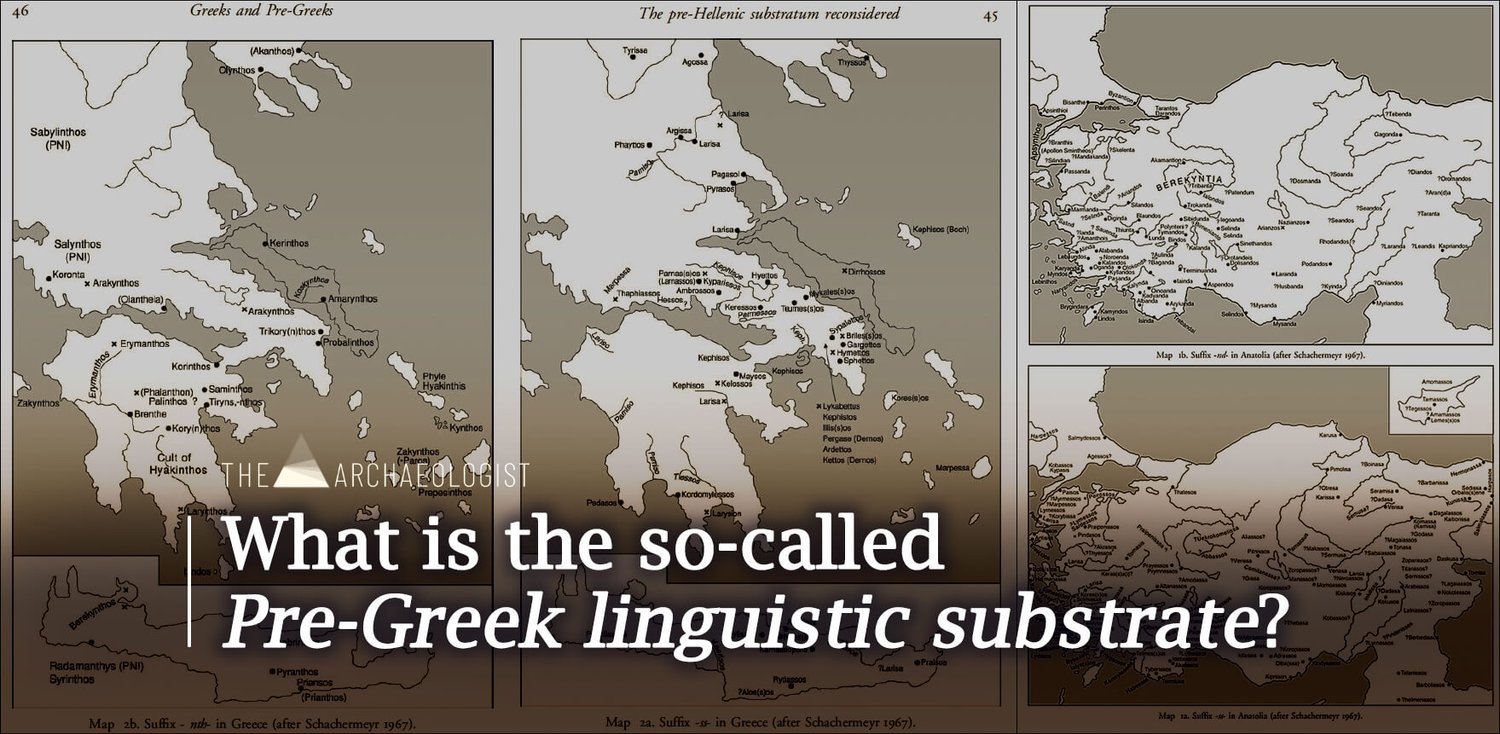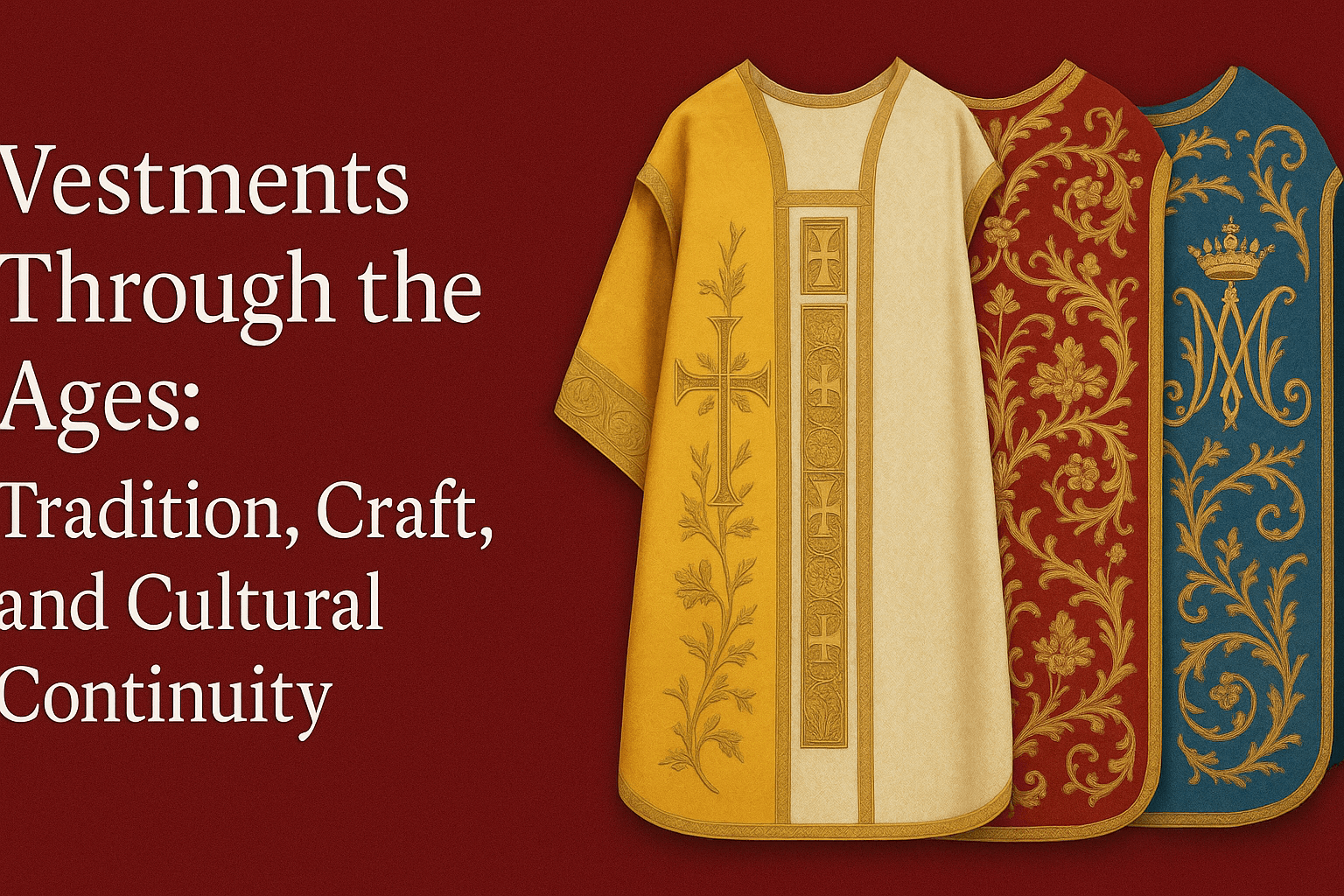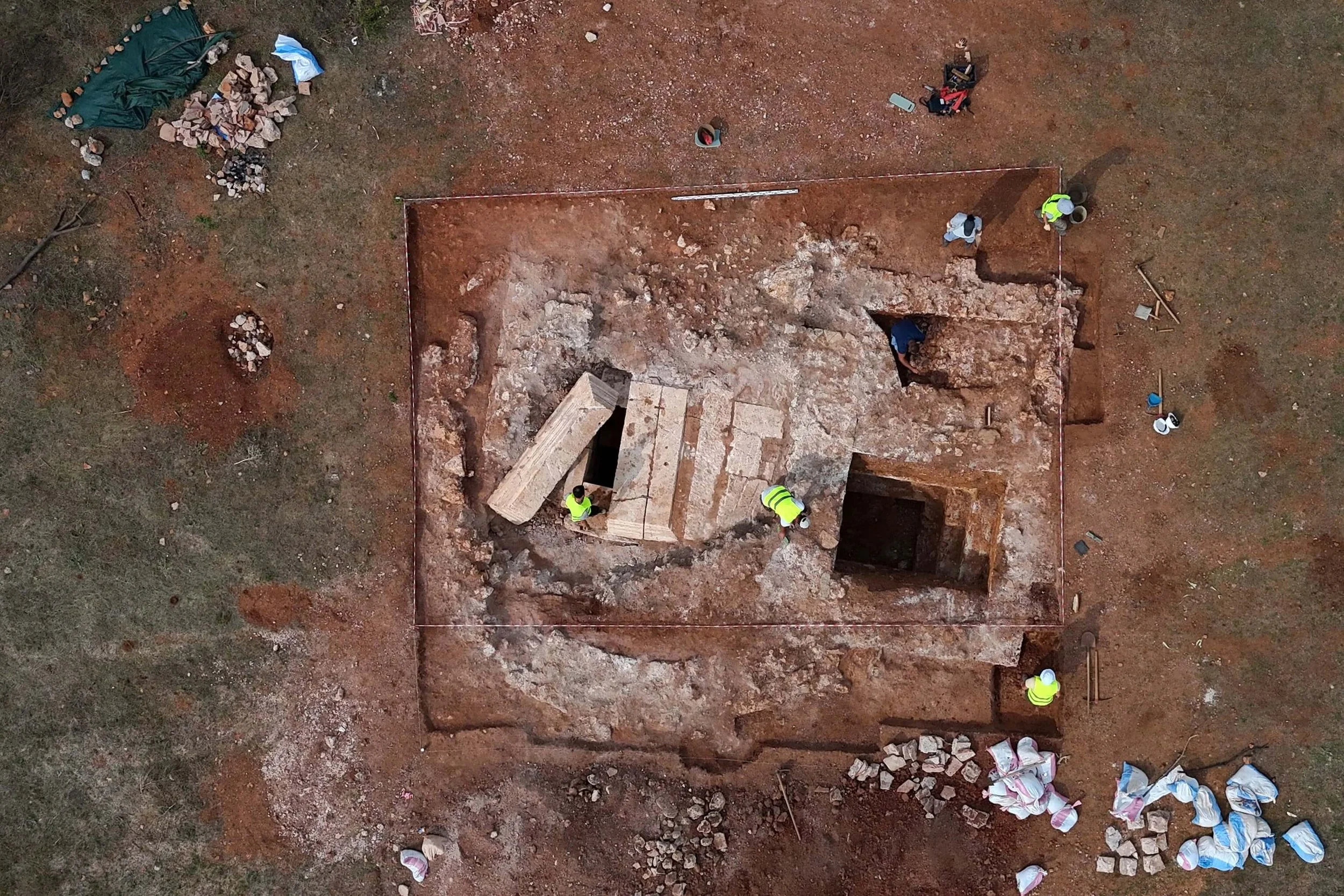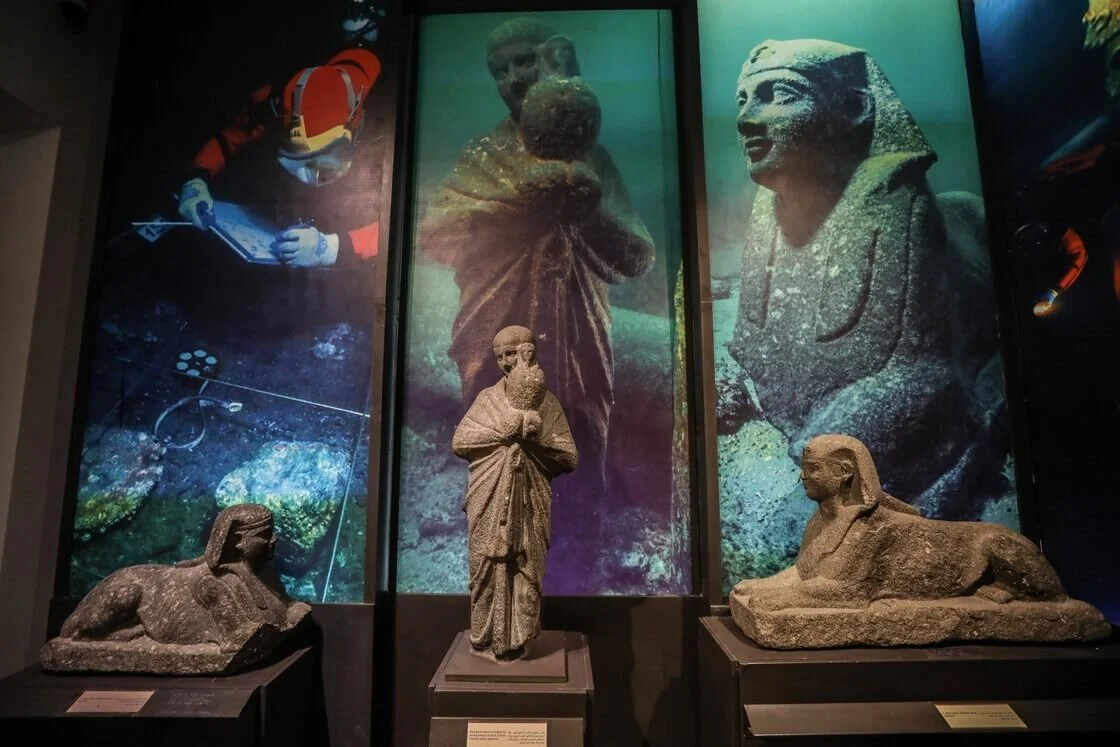Unraveling the Enigma of Pre-Historic Greece
The ancient world, with its myriad cultures and mysterious pasts, has long captivated the imagination of historians and archaeologists alike. Among the many enigmatic groups that pepper the landscape of antiquity, few are as intriguing and elusive as the Pelasgians. Their story is woven into the very fabric of Greek history, emerging as a shadowy precursor to the luminous dawn of classical Greek civilization.
They are perceptible throughout a vast amount of time and space in the ancient Aegean world, but due to the passing of time and the subsequent dominance of Hellenic culture, they are still largely a mystery. Described variously by classical authors as the original inhabitants of Greece, their story is a tapestry of myth, legend, and fragmented historical accounts.
In exploring the Pelasgian enigma, one encounters a labyrinth of questions regarding their origins, language, and culture. Were they the first settlers of the Greek mainland, or a diverse group of indigenous people unified under a Greek nomenclature? Did they speak a language that was an antecedent to Greek or something entirely distinct? Theories abound, but answers are fleeting, like chasing shadows in the dim light of early dawn.
Origins and Identity
The term "Pelasgians" (Ancient Greek: Πελασγοί) primarily referred to the indigenous populations of Greece before the Hellenic era. According to historian Peter Green, this broad designation suggests a diverse and ancient group that predated and possibly influenced early Greek culture.
A lack of conclusive archaeological evidence and unambiguous historical records in antiquity obscures the origins and identity of the Pelasgians. They are often described as the autochthonous people of Greece, predating the arrival of Hellenic tribes. Ancient Greek writers variably portrayed them as ancestors or contemporaries of the early Greeks, possibly inhabiting regions across Greece, the Aegean islands, and parts of Anatolia.
The statements regarding the Pelasgians having lived in the Aegean region before the arrival of the Greeks are intriguing but not entirely supported by current scholarly consensus or scientific evidence. Addressing these assertions requires a careful examination of historical, archaeological, and linguistic evidence.
The consensus is that the Pelasgians were indeed a pre-Hellenic people inhabiting parts of Greece, the Aegean, and possibly other regions. However, the extent to which they were genetically related to the ancient Greeks, Thracians, and Illyrians is not definitively established. Genetic studies have advanced our understanding of ancient populations, but they do not yet provide conclusive evidence about the specific relationships between these groups.
Etymology and Mythology
The etymology of "Pelasgian" is shrouded in uncertainty. The Ancient Greeks linked the term to 'pelargos' (stork), suggesting a migratory origin. Another theory relates 'pelas' to 'near' or 'neighboring land'. Mythologically, the Pelasgians are often connected to the foundational myths of Greek culture. Pelasgus, a figure in Greek mythology, is sometimes considered their eponymous ancestor, often depicted as a primitive, earth-born king, reinforcing their image as the original inhabitants of the Greek lands.
A.J. Van Windekens, a prominent linguist and philologist, contributed significantly to the study of Indo-European languages and their etymology. In his exploration of the ethnonym "Pelasgos," Van Windekens proposed an intriguing etymology that diverges from more traditional interpretations.
According to Van Windekens, the name "Pelasgos" could be derived from an Indo-European root, which he posited as *bhelosgho-s. This root, in his interpretation, translates to "blooming branch" or something akin to it. This suggestion is perhaps quite poetic and symbolic, implying a connection to growth, fertility, or perhaps a flourishing civilization. On the other hand, this etymology may connect the Pelasgians with the Neolithic inhabitants of Greece. This is a fascinating topic that intertwines linguistic analysis with archaeological and historical evidence. Some scholars contend that the Pelasgians represent this pivotal period in Greek prehistory, which was characterized by significant agricultural advancements and the shift from nomadic to settled lifestyles. This hypothesis positions the Pelasgians as pivotal in the dawn of agriculture and settled civilization in ancient Greece, yet the lack of definitive evidence keeps their story enigmatic and largely interpretive.
Linguistic and Cultural Aspects
Linguistically, the Pelasgians are a conundrum. Greek sources described their language as 'barbarian', implying it was non-Greek, yet its specifics remain unknown. This has led to speculation that the Pelasgians spoke a pre-Indo-European language, or possibly a variety of languages reflecting their widespread geographical distribution. Culturally, they are thought to have influenced the developing Greek culture, with some Greek practices and deities possibly having Pelasgian origins. Their language remains a topic of extensive speculation, with various theories suggesting connections to Indo-European, Anatolian, or even non-Indo-European roots.
Regarding the influence of Anatolian languages on Greek, there is evidence of cultural and linguistic exchanges across the Aegean in the ancient world. However, the exact nature and extent of these influences, particularly regarding the development of Greek language and culture, are still subjects of ongoing research and debate.
Archaeological Evidence
Archaeological evidence regarding the Pelasgians is sparse and often indirect. Excavations in regions traditionally associated with them, like Lemnos, Thessaly, and Attica, have unearthed settlements and artifacts suggesting a Neolithic presence. However, unequivocally linking these findings to the Pelasgians is challenging, primarily due to the absence of inscriptions or distinct cultural markers that can be conclusively attributed to them.
Literary References
Literary references to the Pelasgians are found in the works of Homer, Herodotus, Thucydides, and other ancient authors. These accounts are often ambiguous and contradictory, sometimes describing the Pelasgians as barbaric, other times as Greeks. They are mentioned in various contexts, including their participation in the Trojan War and their widespread settlements across the Aegean region.
The paradox of the Pelasgians lies in their simultaneous omnipresence and obscurity in ancient Greek records. They are everywhere and nowhere, a people whose absence is just as important as their presence, according to Homer, Herodotus, and scholars throughout history. Their role in the formation of Greek identity, their linguistic contributions, and their cultural practices are subjects of ongoing academic debate and fascination.
DNA Evidence and the Pelasgian-Anatolian Connection in the Aegean Neolithic Tapestry
Finding Neolithic DNA in the Greek mainland, Crete, and Anatolia shows a link between the Pelasgians and people from Anatolia. This is an interesting mix of archaeogenetics, linguistics, and cultural history that sheds light on the complex web of ancient civilizations in the Aegean and Near Eastern areas.
The discovery of similar Neolithic DNA across regions inhabited by these ancient groups suggests a significant level of genetic continuity that spans across geographical boundaries. This genetic similarity indicates that the populations on the Helladic mainland, Crete, and Anatolia shared common ancestors during the Neolithic period, highlighting a deeper prehistoric connection that predates the emergence of distinct cultural and linguistic identities known from later historical periods.
Turning to Colin Renfrew's Anatolian hypothesis, it postulates that Anatolia was the place where Indo-European languages first spread during the Neolithic era. This theory aligns with the genetic evidence of shared ancestries, suggesting that as Neolithic farmers from Anatolia migrated into Europe, they brought with them the proto-Indo-European language, which would later diversify into various language families, including Greek. If the Pelasgians were indeed part of this widespread Neolithic population, as suggested by the genetic evidence, it could imply that they were either speakers of a proto-Indo-European language or were influenced by the linguistic changes brought about by these migrations.
Furthermore, the concept of a pre-Greek linguistic substrate refers to the influence of non-Greek, possibly indigenous, languages on the Greek language as it developed. The presence of non-Indo-European or proto-Indo-European elements in Greek, some of which might be traced back to the Pelasgian language (if it indeed was distinct from Greek), could be a remnant of these early linguistic interactions. This substrate could potentially be linked to the languages spoken in Anatolia, reflecting a complex web of cultural and linguistic exchanges over millennia.
Neolithic DNA evidence shows that the Pelasgians and Anatolian people had genetic, cultural, and linguistic links. These links suggest that these ancient groups were connected and interacted with each other. The Anatolian hypothesis and the idea of a pre-Greek linguistic substrate make for a strong framework for understanding these connections. They suggest that the roots of ancient Greek civilization and Indo-European languages may be much more connected to their Neolithic ancestors in Anatolia than was previously thought. These findings not only challenge our understanding of ancient ethnic and linguistic identities but also highlight the fluid and interconnected nature of human societies in the ancient world.
Theories and Speculations
The lack of concrete information has led to various theories and speculations about the Pelasgians. These range from considering them the bearers of a pre-Greek, possibly Anatolian or Thracian culture, to theories proposing them as a branch of the wider Indo-European family. Some modern scholars view them as a cultural and linguistic conglomerate, representing the diverse ethnic and linguistic landscape of the pre-Hellenic Aegean and Balkan regions.
In conclusion, the Pelasgians, as elusive as they are intriguing, represent a pivotal piece in the puzzle of ancient Mediterranean civilizations. Their study offers a fascinating glimpse into the complexities of cultural identity, linguistic evolution, and historical interpretation in one of the most historically significant regions of the ancient world.


